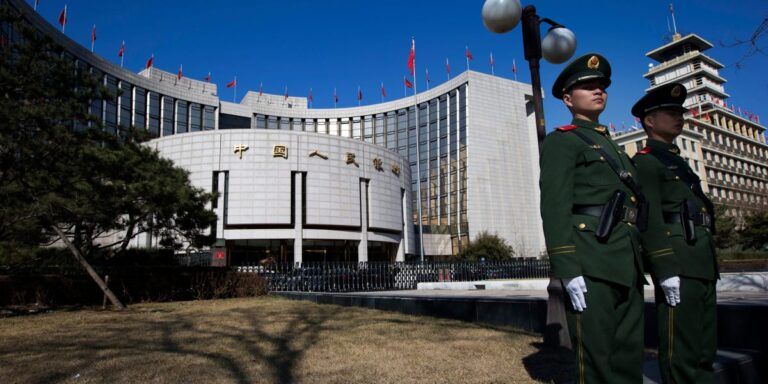- China cut its key interest rate last week after Communist Party officials met at a plenary session.
- China’s second-quarter economic data fell short of government targets and analysts’ expectations.
- The cuts come as the country struggles with debt, weak consumer confidence and a real estate crisis.
China, the world’s second-largest economy, cut several short- and long-term interest rates on Monday to support its struggling, debt-ridden economy.
The People’s Bank of China cut the seven-day reverse repo rate by 10 basis points to 1.7 percent from 1.8 percent and also cut the standing lending limit given to commercial banks to provide them with temporary cash by the same amount.
China also cut its benchmark bank lending rates, including the one-year prime lending rate and the five-year LPR, by 10 basis points, from 3.45% to 3.35% and from 3.95% to 3.85%, respectively.
The surprise cut came after the country released second-quarter economic data last week showing economic growth of 4.7% from a year earlier, missing this year’s target of 5.0%, below analysts’ expectations.
In China, strong exports continue to drive economic growth amid weak consumer confidence, even as household savings hit a record last month. Retail sales rose just 2% in June from a year earlier.
The rate cut followed a meeting of the country’s leaders last week at the Communist Party’s Central Committee Plenum, held every five years.
“China’s Third Plenary Session “‘High-quality development’ has been made a top priority, with policymakers vowing to hit 2024 growth targets and manage risks in real estate, local government debt and small banks,” Bank of America analysts wrote on Monday.
Other commentators said the reforms and interest rate cuts promised at the meeting were positive developments but not enough to convince nervous investors that China’s problems are over.
“[T]”Tensions appear to persist between policies aimed at making the economy more secure and expanding the supply side of the economy, and policies aimed at giving market forces a greater role and restoring balance between growth and consumption,” Capital Economics wrote after last week’s meeting.
China released a policy paper after the meeting outlining goals to improve business confidence as its economy faces deflation, debt, a real estate crisis and tense international trade relations with other major powers.

